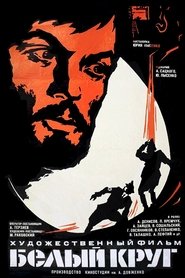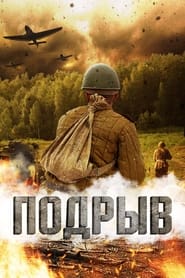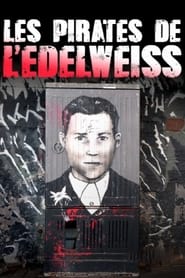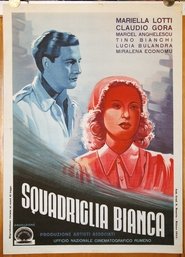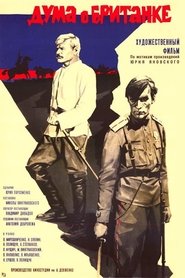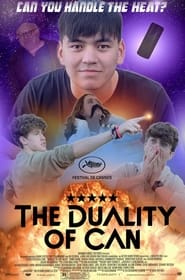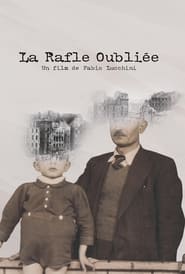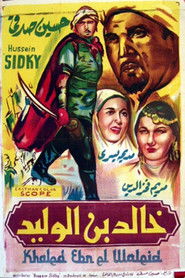Top Rated War Movies on Tub Tv - Page 300
-
Juan Mechas Vol.2: The Revenge of Lg Og
2019
star 10After defeating a dangerous mob boss named Popovich, Juan Mechas and his new adoptive daughter, America, must defeat Lg Og, a vengeful lackey of Popovich. -
White Circle
1974
White Circle
1974
star 8About the struggle of steelworkers and residents of the city of Mariupol against the German fascist invaders during World War II. -
Unseen Photos of Anfal
2019
star 4The story tells the life of a photographer who lived in areas of Iraqi Kurdistan and in areas where there was genocide. He has photographed the people of the villages and towns in the areas. And after a long time more than 25 years, the negative films passed from one owner to another. Recently one from the village of Asker found out about those pictures. then he starts searches from one village to another looking for the relatives of those missing in Anfal Military operations. He wants to give them the photographs of their missing people. With every photo, there are touching stories. For example, an old man and an old woman lost their five children in 1988 and have no pictures. Thirty years later, They are able to see pictures of their five children. -
The Belly of a Horrible Machine, Bleeding to Death
2019
star 7World War II. Kulak of Polish descent has been robbed. A man is so desperate that he decides to go through a minefield to pick apples for his dying son. -
The Fallen Solider
0000
The Fallen Solider
0000
star 10Set in the Vietnam war, two helpless soldiers who are on the brink of escaping the war are suddenly ambushed. This causes the ex solider to reflect on the decisions he made that day which still haunt him. -
Detonation
2023
Detonation
2023
star 5Russian propaganda film. In 1945, the Second World War has not yet ended, but large-scale work is underway on the territory of liberated Belarus to clear the land of the legacy of war - unexploded mines and shells left in the ground at the site of military operations. OSOAVIAKHIM detachments are created from among teenage volunteers. After completing only a week's training, young girls and boys are sent to personally demining places where fierce battles had recently taken place. -
Misdirection
2023
Misdirection
2023
star 6A terrified young girl, Silvia, finds refuge from the horrors of war in a barn, before her worst fears come true. The menacing figure of a man, Albrecht, appears in the doorway, blocking her only escape... -
Treasures of the Guerrilla Forest
2023
star 1At the beginning of the German occupation, the boy and his older teenage sister are left without adults with a museum collection of coins and orders in their hands. Germans and policemen are looking for treasure, chasing children literally on their heels. In order to find the missing mother and save the treasure, the sister and brother need to find protection and help from the partisans. -
The White Squadron
1944
The White Squadron
1944
star 6Inspired by the activity of the medical squadrons, piloted exclusively by female nurses on the Russian front of the Second World War. -
Our Algeria
1959
Our Algeria
1959
star 10"Djazaïrouna", produced by the cinema service of the Provisional Government of the Algerian Republic (GPRA), is a montage film intended to inform the international community at the UN in 1959 on the objectives pursued by the Algerian resistance during the war of 'Algeria. Independence in Algeria (1954-1962). In 1959, Djamel-Eddine Chanderli and Mohammed Lakdar-Hamina produced Djazaïrouna (Our Algeria) from images taken by René Vautier and Doctor Pierre Chaulet. This film, completed a little later and will result in the film “The Voice of the People”. This documentary on the history of Algeria through a montage of current events, traces the political and military actions of the A.L.N, the demonstrations of December 1960, and the attack on a fortified French base on the border between Algeria and Tunisia. -
Tough Heart
2023
Tough Heart
2023
star 2A patriot risked his death to assassinate a Japanese staff officer, hiding the secret information of the Japanese army's military operations in Shanghai in the "Centennial Tai Sui", and the Zhang family father and daughter secretly sent the "Hundred Years Tai Sui" to Shanghai. When they arrived in Shanghai, the father and daughter of the Zhang family died mysteriously, and Qin Taisui, an apprentice in the theater class, was inadvertently involved in this murder case, and the "Hundred Years Taisui" fell into the hands of Shanghai gangster Zhuo Yifan and was auctioned at a high price. At the same time, Qin Taisui, who wanted to clear his grievances, began to investigate the truth of the matter, joined forces with the patriotic anti-Japanese secret organization, and fought fiercely with the Japanese secret agencies to recapture the secret military intelligence, and finally walked towards the bright road through the baptism of blood and fire. -
Duma about Brytanka
1970
Duma about Brytanka
1970
star 8The film tells about the brutal class struggle during the civil war in the villages of southern Ukraine. -
Klymko
1983
Klymko
1983
star 4Village boy Klimko, accompanying his father to the front, stays with his stepmother. In the occupied village, the hero cannot see his friends. Having survived hunger, injuries and loneliness, the boy enters a vocational school - nine kilometers from the village - and works with new friends for the front... -
The Duality Of Can
2023
The Duality Of Can
2023
star 10Two friends turn on each other after discovering a rare artefact beneath a sacred shrine, and must hone their respective skills if they are to fight one another to the death in hopes of claiming it. -
Last bus
2023
-
The Forgotten Roundup
2023
star 980 years ago, Marseille's Old Port was the scene of a tragic event that is still largely unknown today: the roundup and total destruction of the Saint-Jean district, on Hitler's own orders. "The Forgotten Round-up" draws on the memories of some of the last direct witnesses to the tragedy, and follows the investigation of Marseille lawyer Pascal Luongo, grandson of one of the victims. -
À travers Irène
2022
-
Khalid ibn el Walid
1958
Khalid ibn el Walid
1958
star 3The story of Khalid Ibn Al-Walid (592-642) the greatest military leader in the dawn of Islam during the life of prophet Muhammad and his caliphs Abu Bakr and Omar. -
Después de Ucrania: Relatos de una Cobertura
2023
star 2Four journalists talk about their experiences and share their testimonies of the Russian invasion of Ukraine.
 Netflix
Netflix
 Amazon Prime Video
Amazon Prime Video
 Apple iTunes
Apple iTunes
 Apple TV Plus
Apple TV Plus
 Disney Plus
Disney Plus
 Google Play Movies
Google Play Movies
 Paramount Plus
Paramount Plus
 Hulu
Hulu
 HBO Max
HBO Max
 YouTube
YouTube
 fuboTV
fuboTV
 Peacock
Peacock
 Peacock Premium
Peacock Premium
 Amazon Video
Amazon Video
 The Roku Channel
The Roku Channel
 AMC+
AMC+
 Kocowa
Kocowa
 Hoopla
Hoopla
 The CW
The CW
 Vudu
Vudu
 Starz
Starz
 Showtime
Showtime
 PBS
PBS
 Pantaflix
Pantaflix
 FXNow
FXNow
 Tubi TV
Tubi TV
 Kanopy
Kanopy
 Comedy Central
Comedy Central
 Crunchyroll
Crunchyroll
 Microsoft Store
Microsoft Store
 Redbox
Redbox
 Sun Nxt
Sun Nxt
 ABC
ABC
 DIRECTV
DIRECTV
 Crackle
Crackle
 Fandor
Fandor
 Plex
Plex

